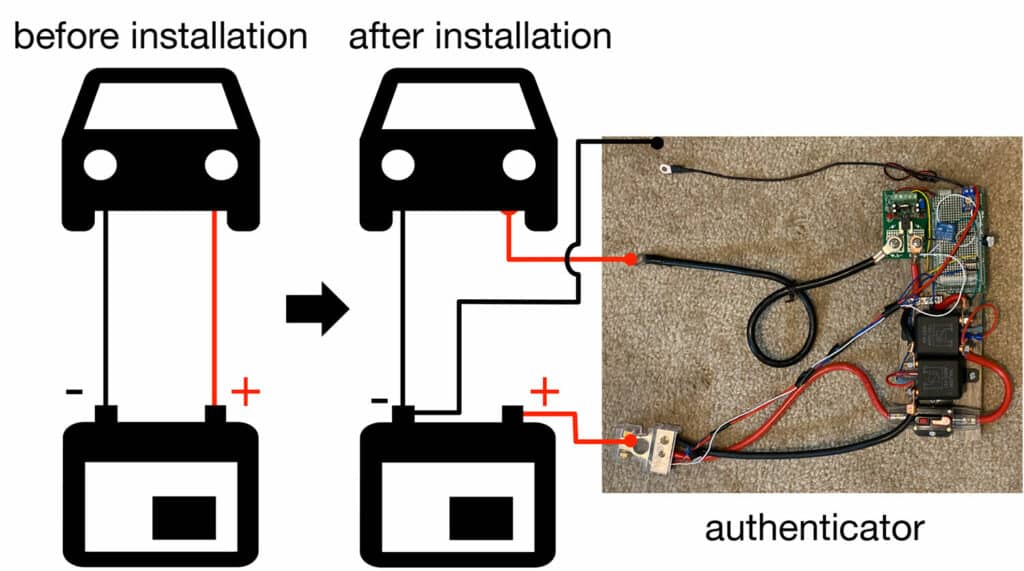Keyless car theft has been on the rise in recent years. With the growing amount of technology in our vehicles, they’re becoming more and more vulnerable to hacking and theft. It’s a concerning issue that needs to be addressed as soon as possible.
A University of Michigan-led research team has developed a solution that is perhaps the lowest-tech feature of today’s vehicles. Called the Battery Sleuth, the device is a vehicle security system that can protect against sophisticated wireless hacking, old-school jimmying, and everything in between.
Battery Sleuth sits between the car’s battery and its electrical system and measures voltage fluctuations. It delivers a predetermined series of voltage fluctuations to the car’s electrical system when the driver enters a numerical code into the keypad device. A receiver then recognizes this “voltage fingerprint” and enables the vehicle to start.
Battery Sleuth’s default mode allows the battery to deliver enough current to power systems like electronics, windshield wipers, and lights but not enough to power the vehicle’s starter. Only when it detects the pre-set series of voltage fluctuations in the vehicle’s electrical system does it turn up the juice, allowing the battery’s full power to fire up the starter motor.

Drivers can also deliver the voltage fluctuation manually using auxiliary functions that draw battery power. The fact is every button and switch in your car creates its own specific voltage fluctuation when you press it. This means that your car’s entire system can be used as a keypad to unlock the ignition. They might perform some combination of flicking the windshield wipers, activating a turn signal or two, flashing the lights on and off, and locking/unlocking the doors.
“The idea of measuring fluctuations in a car’s electrical system seems simple, but designing one device that can do it accurately on thousands of different vehicle models in varying environmental conditions gets quite complicated,” said Liang He, assistant professor of computer science and engineering at the University of Colorado, Denver and a researcher on the project. “We’re working to design a system that’s smart enough to measure the parameters of the vehicle it’s installed on and then customize itself to work effectively on that vehicle.”
The anti-theft device also has defenses to guard against hacking or physical attacks on the device itself, including a siren that sounds if the illegitimate activity is detected and a resistor that shuts down the vehicle’s electrical system if an unauthorized power source is connected to the vehicle. The system is designed to work as either an add-on to existing vehicles or a permanently installed component on new vehicles.
The prototype was tested on eight vehicles in a field test study in July 2022. The Battery Sleuth was found to be more than 99.9% effective at detecting and preventing illegitimate activity without interfering with normal vehicle operation.
At the end of the three-year project, the team aims to have a commercially viable prototype that can be scaled up to commercial production, first as a theft deterrent device and potentially later as a complete vehicle entry and control system that could replace traditional keys and fobs.
